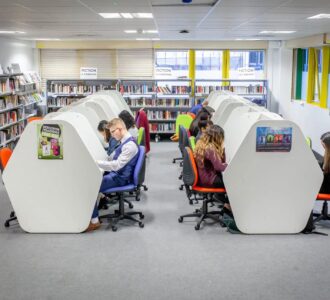Franklin School, Jersey City, New Jersey, USA, was one of the first schools to enrol on the Best School to Work programme and, with its focus on enabling students to chart their own course and growing innovators and socially responsible global leaders, it is easy to see why they were awarded Platinum certification.
After enrolling on the Best School to Work programme, all their staff were sent an anonymous survey to score the school across four key Pillars – Leadership, Collaboration, School Environment and Professional Wellness – drilling down into 15 individual Foundations based upon our bespoke survey and scoring system.
Only the schools that have built the very best culture and working environment for their teachers score highly enough to achieve Platinum certification.
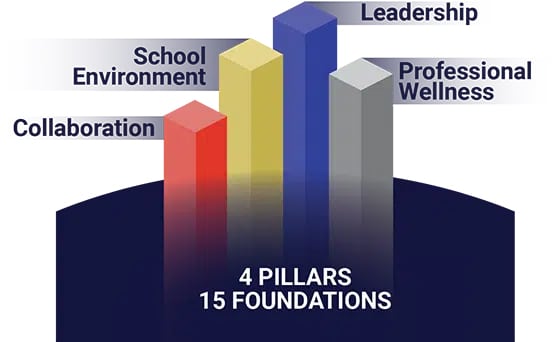
We spoke with Will Campbell, Head of School at the Franklin School, to understand the keys to their success and what being certified by Best School to Work means for them.
T4 Education: Can you tell us where you scored highest on our survey and how?

Will Campbell: We were distinguished as the top-performing school in several sub-categories, particularly in School Leadership and Collaboration. Notably, we emerged as a leading institution in the domains of Professional Wellness and School Environment.
At Franklin, we have diligently aspired to design and implement best practices across several key areas to ensure excellence in education and workplace culture. We have purposely worked on setting a clear and inspiring direction for the school, empowering our staff and fostering their professional growth while facilitating a collaborative decision-making process. We prioritise transparent communication and ensuring that interactions between leadership and staff are open and consistent.
By continuously challenging ourselves to cultivate a strong collaborative culture, we have witnessed effective teamwork and cooperative problem-solving among faculty, staff, and administrators, aligning goals across departments and forming effective partnerships with external stakeholders such as parents and community organisations.
Our dedication to promoting a healthy work-life balance through flexible scheduling and an understanding that ‘life happens’ has boosted workplace satisfaction and motivation. Our faculty and staff made it clear that encouraging an inclusive atmosphere where every member of the school community feels valued, ensuring our physical spaces are safe, stimulating, and well-maintained to enhance teaching and learning, and providing adequate resources and facilities to support effective educational practices was appreciated and important to them.
Our commitment to continuous improvement and innovation involves regularly adopting and sharing best practices in leadership and teaching, using feedback from staff, students, and stakeholders to refine our practices and policies, and embracing innovative solutions and technologies to enhance both educational outcomes and operational efficiency.
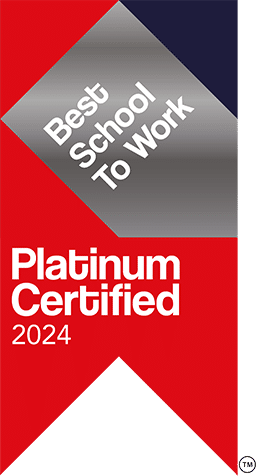
T4 Education: Can you give us some examples of how you’ve supported teacher wellbeing?
Will Campbell: We have strategically integrated personal health and wellbeing objectives into our trimester professional and personal review programme. This approach ensures that our team’s needs regarding wellbeing support and infrastructure are directly addressed, rather than relying on assumptions about what might be beneficial.
By embedding wellbeing goals into our review process, we are actively soliciting feedback and insights from our team members about their specific needs and preferences. This dialogue allows us to tailor our support systems more precisely and effectively, aligning our initiatives with the genuine needs of our staff rather than applying generalised solutions.
A key component of our strategy involves the inclusion of two dedicated learning and development sessions within our teachers’ schedules each year. These sessions collectively amount to over 30 hours of onsite professional development annually. This initiative underscores our commitment to continuous growth and improvement, providing our team with valuable opportunities to enhance their skills, stay updated with the latest educational practices, and address any professional or personal development needs that arise.
Additionally, we have established partnerships with local health providers to offer our staff discounted health and wellness services. This collaboration extends beyond traditional professional development, addressing holistic wellbeing and ensuring that our team members have access to quality health resources.
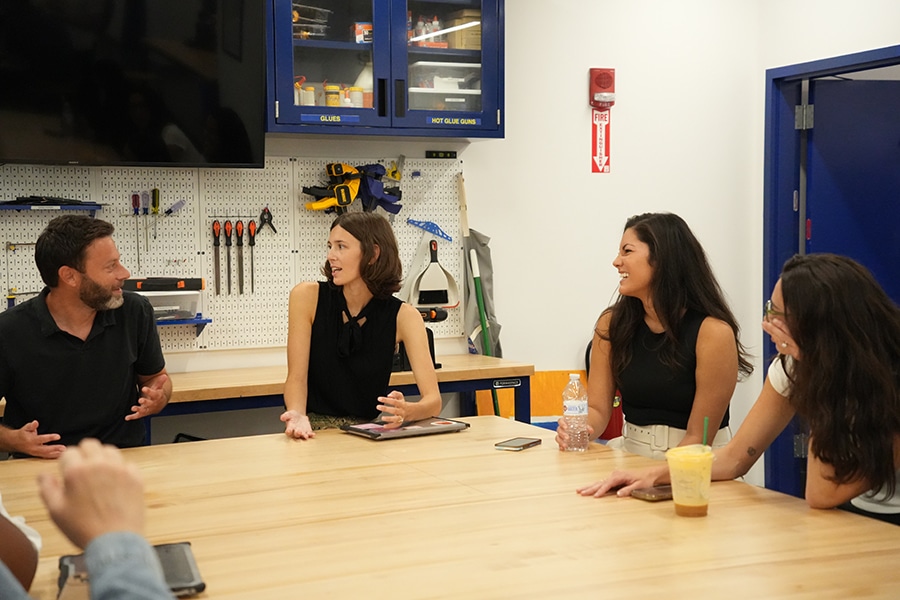
T4 Education: How have you supported teachers with their professional development?
Will Campbell: Supporting teachers with their professional development is built into all levels of the school. At the administrative level, we have an SLT (Senior Leadership Team) member whose job it is to help teachers develop their skills. Our Director of Professional Practice works daily with teachers by visiting their classrooms, engaging with teachers as they think about their growth, attending Department meetings, hosting faculty meetings, and by designing and implementing a robust Professional Learning Programme.
At a structural level, two periods of Professional Learning are built into every teacher’s schedule each week; two periods a week means that this structure alone offers them 30
hours of Professional Development each year. To help focus those periods, the school offers three Pathways for shaping how those periods are spent.
This year’s Pathways are: thinking skills, differentiation skills, or assessment and feedback. At the core of each Pathway is the question: how can I improve the learning or well being of my students? While working in their Pathway, teachers complete their own inquiry research and spend time implementing their learning and reflecting on that implementation. Teachers are given regular opportunities each month to share their learning with their colleagues and to seek support throughout the process.
Professional Development at Franklin is rooted in improving the learning and wellbeing of our students while also seeking to support the learning and well-being of our faculty.
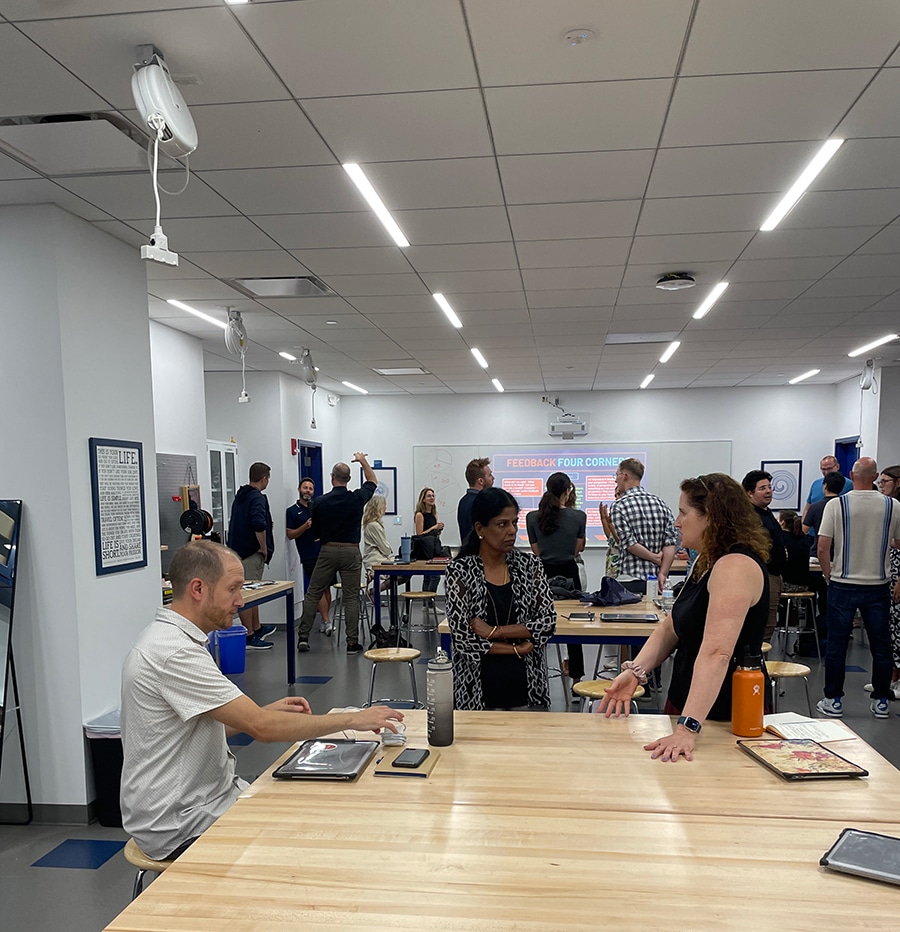
T4 Education: How important is it for schools to have strong vision and leadership? Can you tell me about yours?
Will Campbell: A strong vision and leadership is fundamental to the success of any school. We aspire to provide direction, inspire and motivate, ensure consistency, enhance school culture, support effective implementation of initiatives, attract and retain talent, build community support, and drive ongoing improvement.
I like to see my leadership style as blending strategic acumen and emotional adaptability. As a leader, I employ a data-driven approach to inform decisions, ensuring that our strategies are grounded in empirical evidence and tailored to achieve the most effective outcomes. This analytical framework allows me to set clear, measurable goals and to refine our methods based on performance metrics, thereby driving sustained progress and excellence.
Equally important is my capacity to emotionally adapt to the evolving needs of the group. I recognise that each team member brings unique strengths and challenges, and I am committed to cultivating an environment where individuals feel supported and empowered. By understanding and responding to the emotional dynamics within the team, I encourage a culture of collaboration and resilience, enabling us to overcome obstacles and reach our collective potential.
Central to my leadership philosophy is the belief in the importance of personal wellbeing—both my own and that of my team. I openly discuss my own wellbeing as a priority, setting an example and serving as a gatekeeper for others. This transparency helps to normalise the conversation around mental health and encourages a supportive atmosphere where wellbeing is valued and actively promoted.
My leadership mentality extends to every member of the community, as I strive to create the best possible academic, social, and emotional environment. I am dedicated to facilitating opportunities for growth and challenging individuals to expand their capabilities and competencies. By doing so, I aim to empower others to realise their full potential and to contribute to a thriving, dynamic community where both academic and personal development are paramount.
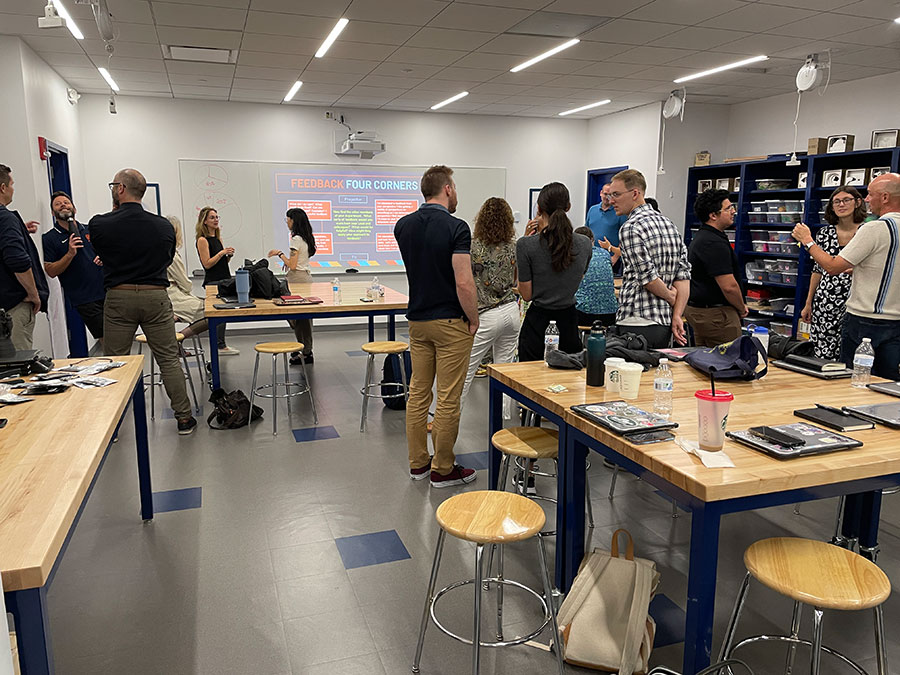
T4 Education: Why is having a good school culture important to you? Do you find it impacts academic achievement? Does it help you recruit and retain good teachers?
Will Campbell: First and foremost, a good school culture cultivates an atmosphere where empathy and compassion are embedded in daily interactions. This supportive environment enhances students’ emotional wellbeing, which is crucial for their academic and personal development. When students feel valued and understood, they are more likely to engage deeply with their studies and pursue their academic goals with vigour. This emotional foundation translates into improved academic outcomes, as a positive culture encourages students to invest in their learning and supports their resilience in the face of challenges.
Moreover, a well-nurtured school culture plays a significant role in recruiting and retaining high-quality educators. Teachers are drawn to and remain in environments where they feel supported, respected, and part of a cohesive team. A culture that prioritises mutual respect and professional growth not only attracts talented individuals but also fosters their commitment and long-term satisfaction. This, in turn, enhances the overall quality of education provided to students, creating a virtuous cycle of excellence.
T4 Education: Would you recommend Best School to Work to other schools?
Will Campbell: Without a doubt, the Best School to Work survey, conducted by an independent external organisation and featuring an anonymous process, offered invaluable insights into the genuine sentiments of our team. This unbiased approach ensured that staff members felt comfortable sharing honest feedback without concerns about repercussions. The survey highlighted our strengths, revealing areas where we excelled and underscoring our successes.
More importantly, it pinpointed specific areas needing improvement, providing clear priorities for us to address. By leveraging this comprehensive feedback, we gained a deeper understanding of our team’s experiences and needs, allowing us to make informed decisions and focus our efforts on enhancing areas that are crucial for our ongoing growth and success.
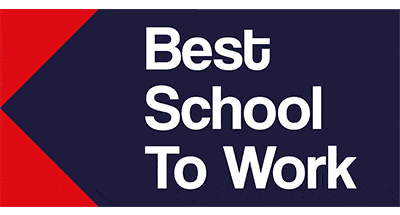
If, like Franklin, your school has built the best school culture and working environment and you want to get certified, or if you want to identify areas of improvement and gain actionable insights, then Best School to Work is for you. To learn more about how we can support your school, visit Best School to Work or book a demo today.

